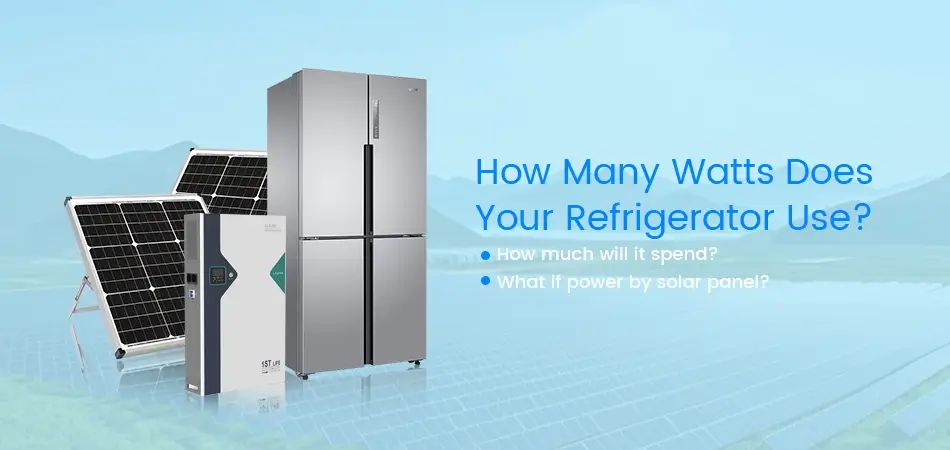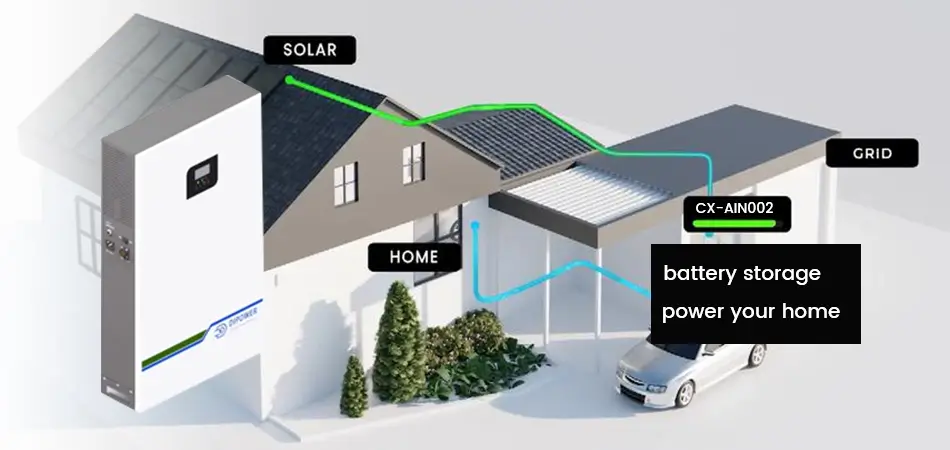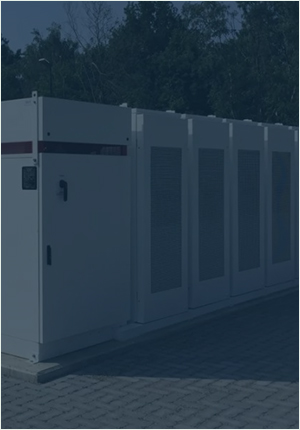2024-11-08 Author : CXJPowers
As a manufacturer of home battery systems, we often get inquiries about the power consumption of various appliances, especially refrigerators. In this article, we'll delve into the specifics of refrigerator power usage, its cost implications, and how solar panels can be an effective solution.

Refrigerator Power Consumption
The wattage used by a refrigerator varies widely depending on its size, efficiency, and age. On average, a modern, efficient refrigerator uses between 100 to 250 watts of electricity when running.
However, older models or those with lower efficiency ratings can use significantly more. It's important to note that refrigerators don't run continuously;
they cycle on and off to maintain the set temperature, which means their average power consumption over time is lower than their peak wattage.
To calculate the cost of powering a refrigerator, you need to consider both the wattage and the hours of operation.
For simplicity, let's assume an average refrigerator uses 200 watts and runs for 8 hours a day. At a rate of $0.15 per kilowatt-hour (kWh), the daily cost would be:
(200 watts / 1,000) x 8 hours x $0.15 = $0.24
Over a year, this amounts to approximately $87.60. Of course, these figures can vary widely based on your electricity rates and refrigerator usage.
Determining how many solar panels you need to power a refrigerator depends on several factors, including the refrigerator's power consumption, the efficiency of the solar panels, and the amount of sunlight your location receives.
As a rough estimate, if your refrigerator uses 200 watts continuously and you have solar panels with an efficiency of 20%, you would need approximately 1,000 watts (or 1 kilowatt) of solar capacity to run the refrigerator during daylight hours.
This translates to about 5 solar panels, assuming each panel produces 200 watts.
A typical household in the United States uses around 10,800 kWh of electricity per year. However, this can vary widely depending on the number of appliances, their efficiency, and the lifestyle of the residents.
Refrigerators typically account for a significant portion of this usage, especially in larger households with multiple refrigerators. But if you install solar panels and home battery system, this aspect will be greatly reduced.
Home battery system can not only reduce electricity bills, but also maintain normal power supply during sudden power outages, allowing some electrical appliances that cannot be turned off to continue working.
A: Ensure it's properly insulated, clean the condenser coils regularly, and set the temperature to an appropriate level. Also, consider upgrading to an Energy Star certified refrigerator for greater efficiency.
A: It's possible, but you'll need enough solar capacity to account for both the refrigerator's usage and any other appliances or lights you want to power during the day.
Additionally, you'll need a home battery system to provide power at night and during cloudy weather.

Switching to solar power for your refrigerator can lead to significant savings over time. Not only do you reduce your reliance on the grid, but you also take advantage of potentially lower electricity rates in some areas.
Plus, as utility prices tend to rise over time, the savings from solar can increase even further. Additionally, installing solar panels can increase your home's value and provide a hedge against future electricity price increases.
In conclusion, understanding your refrigerator's power consumption is crucial for managing your energy bills and planning your renewable energy setup.
At our company, we offer high-quality home battery system that can complement your solar system, ensuring a reliable and cost-effective power supply for your refrigerator and other appliances.
-------------------
Welcome to customize home battery system. Contact us now!
CXJPowers provides one-stop customized portable power supplies, LiFePO4/ternary lithium battery pack packs, emergency energy storage solutions, and supports OEM&ODM services.



